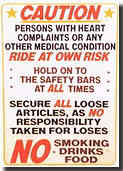Wednesday, June 29, 2011
The poor are characterized as lacking wisdom. Those who most sit in harshest judgment of the poor & defend the rights of the wealthy claim to be Christians. The more vocally Christian they are, the more they speak for the prerogatives & power of wealth.
The good, they say, depends on unfettering those with wealth so that the wealthy may better demonstrate their beneficence & become more Christian. That's how I read the gist of The Beatitudes as presented by the Hoover Institute: They are intended for the spiritual empowerment & salvation of the wealthy. Sheesh.
I was thinking about this because my e mail delivered a quote from liberation theologian Jon Sobrino, & as usual with liberation theology I nodded in agreement: "The kingdom of God will come as a civilization of poverty, in opposition to the civilization of wealth.." But then ran into a statement that didn't please me so much: "We must struggle to take back control of words and their definition,...." It's always a war of language, I'm not on the side of the "language of empire" or "the language of God," the two sides Sobrino gives. In the United States, the language of God & of empire get all mixed up. If he means the language of justice & compassion, you don't need religion for that.
I suspect "kingdom of God," a mysterious metaphor, means something quite different for mainline protestants growing up when Dr. King was alive. We didn't reside in a poor, predominantly Catholic Latin American nation where an authoritarian Catholic Church was allied with a repressive government, the two institutional structures mirroring each other. So we didn't see a necessity for actual revolutionary change in government. If people could be changed, government would follow. The problem then, as now, is making injustice visible as injustice. Dr, King was master of this. Our media was hypothetically free enough to show it. Images of violence done peaceful civil rights activists had a profound, permanent influence on me. Unlike other people in my family, I couldn't emotionally resist those images. I imagined myself standing with both sides. If one truly believed in segregation, in racial inequality, then one should have the minimal "courage" of one's convictions to join those jeering, spitting, rock throwing racists, to man the high pressure fire hoses & unleash the dogs. Join the lynch mob if lynching is what you want. But to look at the TV & mutter insults & racial epithets in the privacy of one's home & then go out & smile at black people & dance to Motown records was unacceptable to me. It was more cowardly than cracker behavior.
***
I reside just outside the urban battlefield, as I did in nearby towns of Rahway & Linden. The streets west of me so remind me of the town where I grew up (the next town over) that I felt deja vu when I first walked down them. I lost my taste for the dangerous adventure of cities a long time ago, but I want the diversity, & to be honest I like the "white" people who live in these places, the ones who refused to leave & the ones who move in. A lot of people here actually nod & say "hi" when you pass them on the street. Sometimes I get weary of hearing Spanish, but then I think I ought to learn the language.
"If a nation expects to be ignorant and free, in a state of civilization, it expects what never was and never will be." Thomas Jefferson
The good, they say, depends on unfettering those with wealth so that the wealthy may better demonstrate their beneficence & become more Christian. That's how I read the gist of The Beatitudes as presented by the Hoover Institute: They are intended for the spiritual empowerment & salvation of the wealthy. Sheesh.
I was thinking about this because my e mail delivered a quote from liberation theologian Jon Sobrino, & as usual with liberation theology I nodded in agreement: "The kingdom of God will come as a civilization of poverty, in opposition to the civilization of wealth.." But then ran into a statement that didn't please me so much: "We must struggle to take back control of words and their definition,...." It's always a war of language, I'm not on the side of the "language of empire" or "the language of God," the two sides Sobrino gives. In the United States, the language of God & of empire get all mixed up. If he means the language of justice & compassion, you don't need religion for that.
I suspect "kingdom of God," a mysterious metaphor, means something quite different for mainline protestants growing up when Dr. King was alive. We didn't reside in a poor, predominantly Catholic Latin American nation where an authoritarian Catholic Church was allied with a repressive government, the two institutional structures mirroring each other. So we didn't see a necessity for actual revolutionary change in government. If people could be changed, government would follow. The problem then, as now, is making injustice visible as injustice. Dr, King was master of this. Our media was hypothetically free enough to show it. Images of violence done peaceful civil rights activists had a profound, permanent influence on me. Unlike other people in my family, I couldn't emotionally resist those images. I imagined myself standing with both sides. If one truly believed in segregation, in racial inequality, then one should have the minimal "courage" of one's convictions to join those jeering, spitting, rock throwing racists, to man the high pressure fire hoses & unleash the dogs. Join the lynch mob if lynching is what you want. But to look at the TV & mutter insults & racial epithets in the privacy of one's home & then go out & smile at black people & dance to Motown records was unacceptable to me. It was more cowardly than cracker behavior.
***
I reside just outside the urban battlefield, as I did in nearby towns of Rahway & Linden. The streets west of me so remind me of the town where I grew up (the next town over) that I felt deja vu when I first walked down them. I lost my taste for the dangerous adventure of cities a long time ago, but I want the diversity, & to be honest I like the "white" people who live in these places, the ones who refused to leave & the ones who move in. A lot of people here actually nod & say "hi" when you pass them on the street. Sometimes I get weary of hearing Spanish, but then I think I ought to learn the language.














